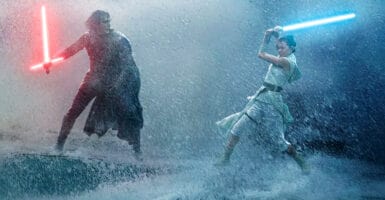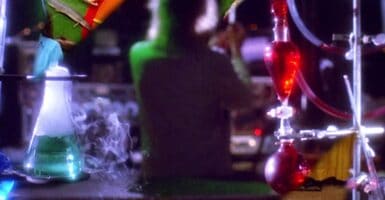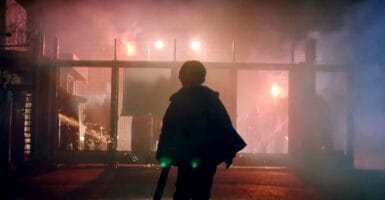Neil DeGrasse Tyson Counts Down His Top Ten Sci-Fi Movies
This article is more than 2 years old
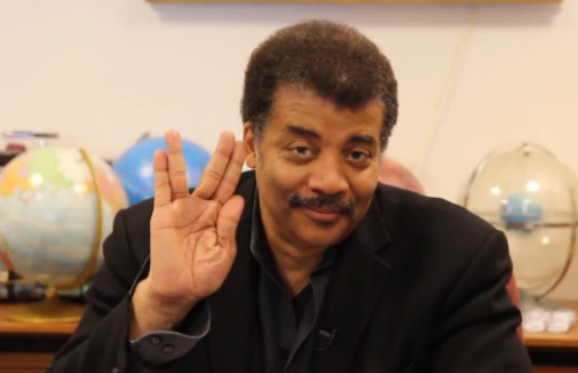 Neil deGrasse Tyson is the closest thing modern science has to a rock star. To call him this generation’s Carl Sagan isn’t too far off. The Harvard-trained astrophysicist has a unique ability to take complex theoretical concepts and make them accessible to a wide audience, and be totally engaging at the same time. Hell, he even helped reboot Sagan’s Cosmos: A Spacetime Odyssey, which wraps up its 13-episode run this Sunday on various Fox channels.
Neil deGrasse Tyson is the closest thing modern science has to a rock star. To call him this generation’s Carl Sagan isn’t too far off. The Harvard-trained astrophysicist has a unique ability to take complex theoretical concepts and make them accessible to a wide audience, and be totally engaging at the same time. Hell, he even helped reboot Sagan’s Cosmos: A Spacetime Odyssey, which wraps up its 13-episode run this Sunday on various Fox channels.
Over the years, Tyson has also taken it upon himself to chime in on various movies that may not be using science in the proper way, or that have blatantly ignored the laws of physics. He absolutely eviscerated that scene J.J. Abrams’ Star Trek Into Darkness where the Enterprise hides underwater. So you have to assume that, given his penchant for pointing out scientific flaws in movies, he must watch a fair amount of them. Hero Complex took it upon themselves to get in touch with him and inquire about his tastes in the genre. What follows are Neil deGrasse Tyson’s top ten favorite sci-fi movies, in chronological order, with one honorable mention. You may find some of them surprising.
I like big-budget science fiction films. My list, with two exceptions, bears this out. I want science fiction films to stretch the talent and imagination of visual effects experts. And the film above all else should create a vision of the future we either know that we don’t want, or know that we do.
 The Day the Earth Stood Still (1951)
The Day the Earth Stood Still (1951)
The story was so strong and compelling that the film did not require heavy special effects or monsters or violence to be simultaneously hopeful and terrifying.
 2001: A Space Odyssey (1968)
2001: A Space Odyssey (1968)
Perhaps the first film to be all about the discovery of alien intelligence yet not show what it looks like, knowing that our imagination could surely do a better job than Hollywood. In any case, it was a visual orgy of space travel and space exploration that we remain far from achieving, even 13 years after the 33 years-in-the-future it portrayed.
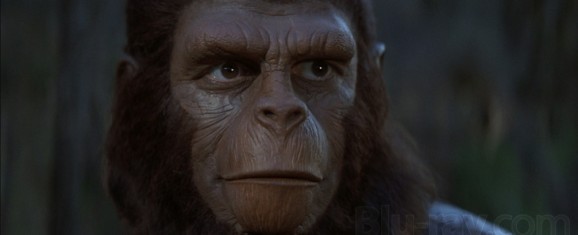 Planet of the Apes (1968)
Planet of the Apes (1968)
Saw this again recently and it held up over all these years in many important details. Had not appreciated when I first saw it. The hierarchy of apes that ran the planet, chimps were the academics, baboons were the soldiers, orangutans were the diplomats. An action-adventure movie that was an insightful mirror to our lives and our civilization.
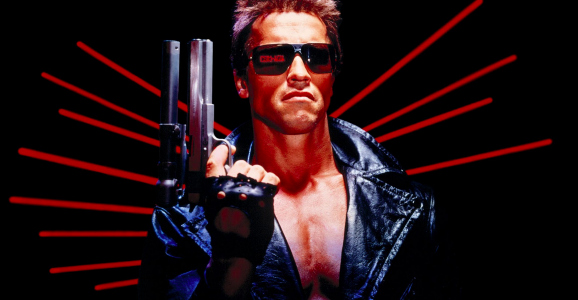 The Terminator (1984)
The Terminator (1984)
Deftly woven action, violence, sentient machines, a heroine and time travel. All stitched together in a tight and scarily plausible storyline. And, when you think about it, a perfect acting vehicle for Arnold Schwarzenegger, as a mostly mute terminator, whom many would rather look at than listen to.
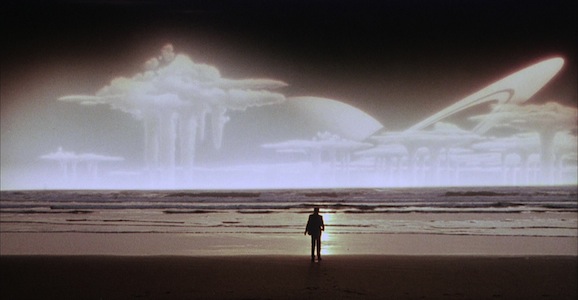 The Quiet Earth (1985)
The Quiet Earth (1985)
Low budget, low distribution. One of many films that imagine for you what life might be like if you were the last person alive on Earth. In this case, the premise, the story, the casual science literacy of the main character, keeps the viewer in suspense the entire time, wondering what the hell happened and why.
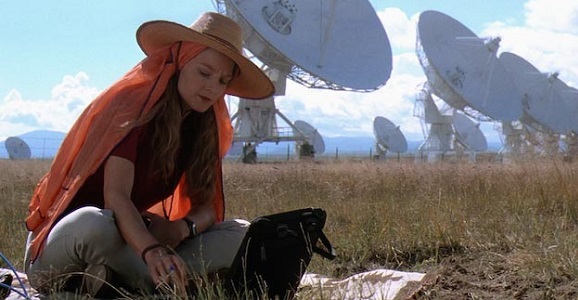 Contact (1997)
Contact (1997)
The second film that I know of that is all about contact with alien intelligence and yet does not offer you a glimpse of what they look like. Perhaps it’s no surprise that Carl Sagan advised Arthur C. Clarke to not show aliens in “2001: A Space Odyssey,” and “Contact” itself is Carl Sagan’s Story. A brilliant exploration of how our culturally and religiously pluralistic society might react to the knowledge that we have been contacted by a species more intelligent than we are.
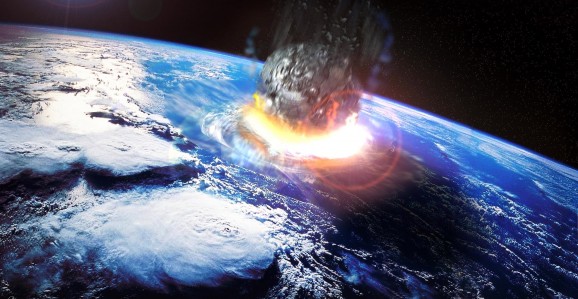 Deep Impact (1998)
Deep Impact (1998)
There have been many asteroid/comet disaster films. But this one took the time to get most of the physics right, and made sure you cared about all the characters in the film so that their prospect of dying matters to the viewer. And Morgan Freeman’s portrayal of the president of the United States may be the best ever.
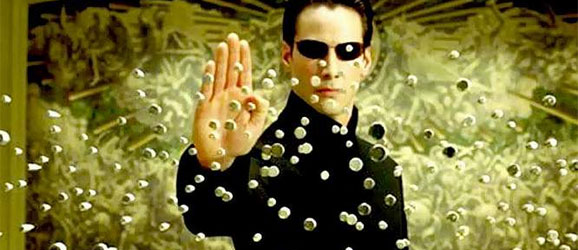 The Matrix (1999)
The Matrix (1999)
My top film in any category. From the opening credits to final scenes, every moment of this film is so fully conceived and so well executed that in spite of the complete fantasy world portrayed, the viewer was there, experiencing it with the characters themselves.
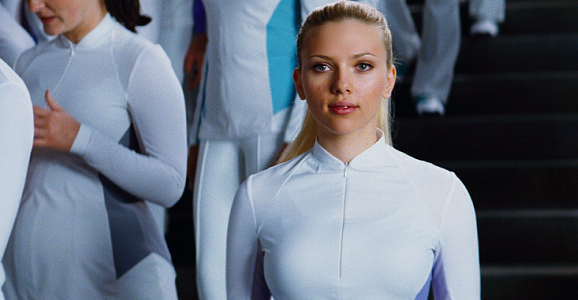 The Island (2005)
The Island (2005)
Apart from too many minutes of gratuitous chase scenes, I think this movie is profound in its message as well as visually stunning. A rare study of science in the service of vanity, mixed with an exploration of corporate profits, human identity and free will. I’ve always viewed Gattaca (1997) as a lower-budget cousin of this film.
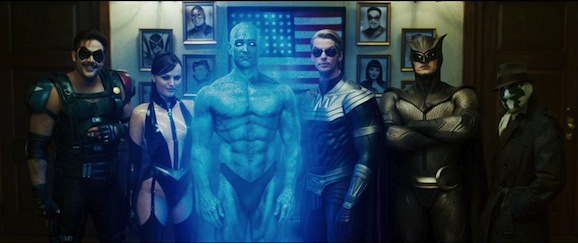 Watchmen (2009)
Watchmen (2009)
I don’t know if I am alone in thinking that Watchmen is the best-of-genre among all superhero films. I liked it because the characters had fully expressed, complex personality profiles. They experience love, hate, revenge, megalomania, moral anguish and trepidation. Nothing polished about them. For this reason, they were all more real to me. If the world really did have superheroes in it, “Watchmen” is the world it would be.
And the runner up is…
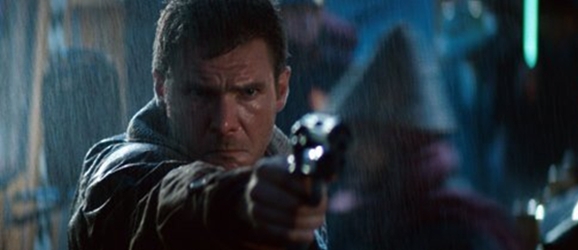 Blade Runner (1982)
Blade Runner (1982)
This story was simultaneously deep and scary. But I never warmed to it the way so many lovers of the genre have. Which makes this comment more of a confession than a review.
There are, admittedly, some unexpected titles on this list. 2001, Blade Runner, you’re likely to see those on most top sci-fi lists. You don’t, however, come across Zach Snyder’s adaptation of Watchmen on too many, and Michael Bay’s The Island appears on even less.









